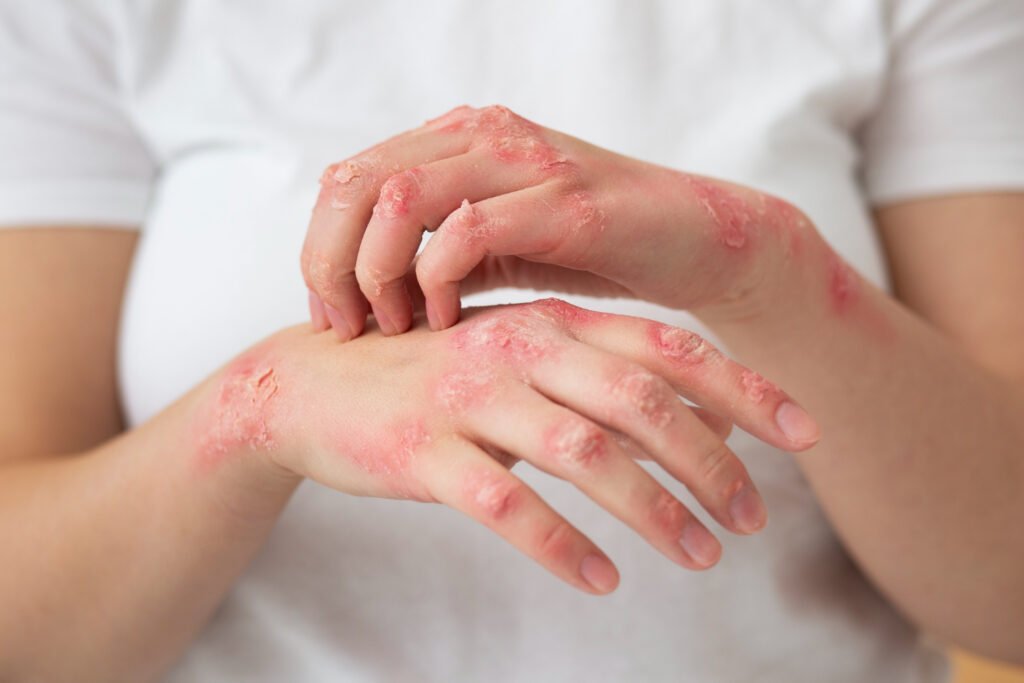The Battle Against Allergies: How to Win the Fight and Stay Symptom-Free
What is an allergy?
Our body fights against infections. When there is a defect in this system, it is called an allergy. Those who have allergies find that their body is resistant to diseases and germs. The immune system develops against elements that are not harmful to the body. This process is called an allergy.
Causes of allergies
There are many causes of allergies in our body, including:
– Dust
– Hot or cold weather
– Sweating
– Domesticated animals
– Roses and flowers
– Sunshine
– Dust mites
– Mold or fungus
– Drugs and insecticides
– Detergents and other chemicals
– Gloves and condoms made of latex or special rubber
– Stress or depression
In addition, there can be allergies to fish, meat, milk, eggs, and nuts.
Symptoms of allergies
If an allergy is present in the body, it can be diagnosed by several symptoms, including:
– Blisters, rashes, and itching
– Swelling of the face and eyes
– Redness and swelling of the eyes
– Coughing, sneezing, runny nose, sore throat and headache
– Shortness of breath, wheezing, chest tightness, and difficulty breathing
– Vomiting, diarrhea, nausea, and abdominal pain
How to get rid of allergies
The first and most effective way is to prevent the formation of allergies.
1. Tackling dust mite allergies for a healthier home
Don’t let your body get close to the enemy. You need to find out what your allergy is. A food allergy is relatively easy to detect, but some things are not as easy to find as food, such as dust mites. These are small insects, not visible, that look like white-colored eight-legged insects under the microscope. They live by eating the dead cells that come out of our skin. Every day, a little bit of dead cells is shed from our skin on the bed, carpet, or sofa, and millions of dust mites live in these places. You may be allergic to these dust mites, a common cause of allergies. Wash bed sheets, blankets, or comforters with warm water at least once a week. Items that can’t be cleaned regularly, such as carpets, are better to use as little as possible at home. You can wear a mask while cleaning the bed. Wipe things with a damp cloth so that the dust does not spread. Be sure to clean the areas of your home where you spend most of your time.
2. Keeping your home fungus-free
If the air is damp, fungi can form, and allergies can be caused by the release of small particles from the fungus. Be sure to ventilate the house so that the fungus does not get into the house. Don’t dry your clothes inside the house. Remove trees from around the house.
3. Understanding pollen allergies
With the change of season, the type of pollen particles floating in the air changes, and the number increases and decreases, which can increase the severity of your allergies. At some point in the year, many people begin to have itchy eyes, runny nose, watery eyes, cold or blocked nose, red eyes, headache, sneezing, and coughing. In this case, the problem is caused by pollen. Be aware of what time of year you have this problem. Stay indoors as much as possible during that time; if you go outside, then come back and change your clothes and take a bath so that the pollen grains get washed away.
4. Avoiding sun exposure and staying comfortable
Your body can react to the substances in sweat. When the body is hot and sweating, itching may occur after a lot of hard work and exercise. Therefore, it is advisable to avoid prolonged sun exposure and go to places where there is air circulation. Be sure to wear light and breathable clothing to avoid overheating.
5. Avoiding cold water
Many people can be allergic to cold water, and allergies can occur when bathing in swimming pools. So, it’s best to avoid them. If possible, bathe with warm water.
Also, allergy problems may occur due to:
– Animal feathers that can float in the air but cannot be seen can cause allergies.
– Certain metals, such as rings, watches, and jewelry.
– Certain chemicals present in soap, shampoo, detergent, perfume, etc.
– Certain types of fabrics and plastics.
– Drugs, such as antibiotics like penicillin.
– Babies and young children can be allergic to foods such as milk, eggs, and peanuts.
It is often seen that there is no allergy to any type of food, such as grass-fed beef, but there is an allergy to corn-fed beef. Every person can be allergic to something, so it is essential to find out what you are allergic to. And it’s relatively easy to control your allergies.
Cure by medication and advice
Antihistamines are the main treatment for allergies, and many medications can help reduce allergies. Follow your doctor’s advice. Apply a small amount of cold compress to the affected area to reduce swelling. Nasal drops or sprays are available for nasal congestion, and there are eye drops for itchy eyes. You can take them according to your doctor’s advice.
Another important factor in dealing with allergies is stress. Allergies can be aggravated by stress, so those who are suffering a lot from allergy problems should find ways to bring peace of mind. Yoga, meditation, and breathing exercises can be helpful.
The next step is immunotherapy, also known as allergy shots. The things that you are allergic to have to be injected a little bit for a few years. In general, there are several stages of effective treatment of allergies. Although it can’t be cured permanently, it can be controlled. So, consult a doctor or an allergy specialist if necessary.
Natural Ways to Treat and Prevent Skin Allergies
There are several home remedies to get rid of allergies, including
1. Tea tree oil
Tea tree oil is a great ingredient for treating skin allergies. It has antimicrobial and anti-inflammatory properties that relieve many skin allergies, helping to reduce redness and irritation.
2. Apple cider vinegar
Apple cider vinegar contains acetic acid, which reduces itching and allergies on the skin. Mix a teaspoon of apple cider vinegar in a glass of warm water and apply the mixture to the affected area with a cotton ball at least twice a day.
3. Coconut oil
Coconut oil moisturizes and protects the skin in case of allergies. It also reduces inflammation. Heat coconut oil in a pan for 5 seconds and apply it to the affected area for an hour. Repeat every 3-4 hours to remove flaky skin.
4. Aloe vera gel
Aloe vera gel quickly relieves irritation and itching caused by allergies. Apply fresh aloe vera gel or aloe vera gel from the market to the affected area and leave it on for 30-40 minutes to reduce itching.
5. Baking soda
Baking soda helps maintain the pH balance of the skin and can be used to treat skin allergies. Make a smooth paste with water and apply it to the affected area for 10 minutes, then wash off. Use 3-4 times a day to get rid of allergies.

